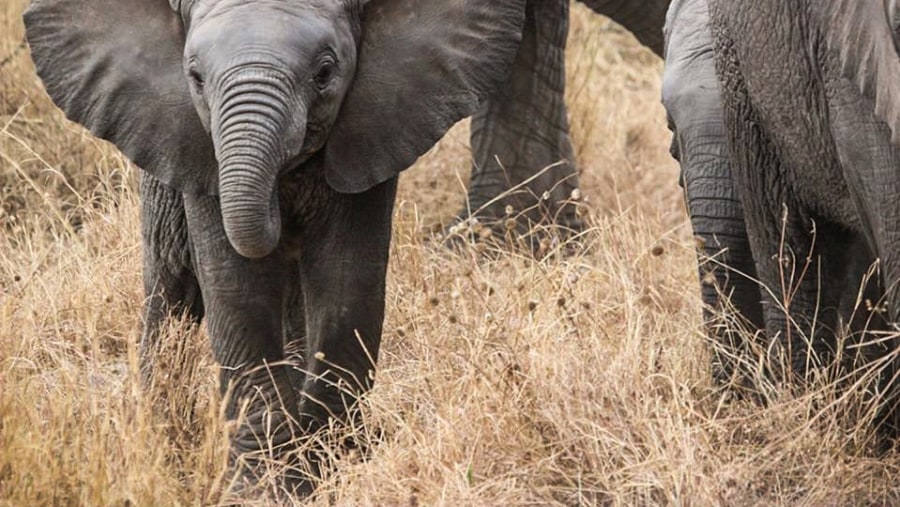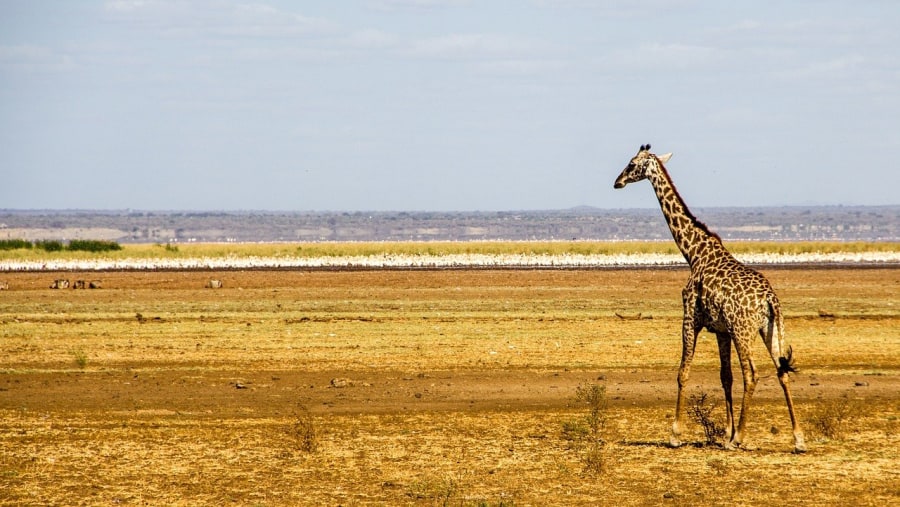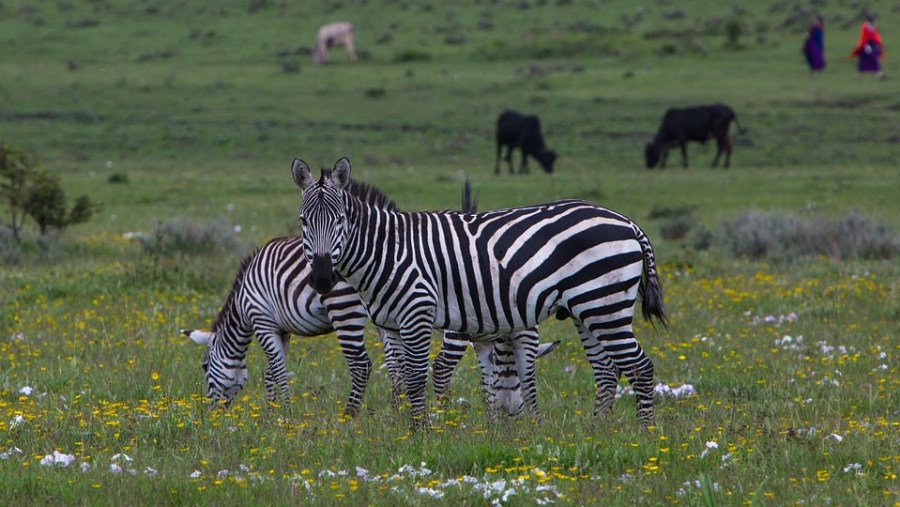4-Day Lake Manyara, Ngorongoro & Serengeti Wildlife Safari
Description
Take this unforgettable tour through the lush lands of Tanzania. Visit the pride of Tanzania- the Serengeti Plains National Park, the heart of wild Africa and a massive wilderness of 14500 square km, Lake Manyara, known to be a bird-watchers paradise, Ngorongoro Crater, featuring one of the highest concentrations of game in Africa and Tarangire National Park, known for its diversity in wildlife.
Highlights
- Explore Lake Manyara National Park, home to more than 350 bird species
- Learn about the "Big Five" in Serengeti National Park
- Visit Ngorongoro Crater, the world's largest inactive, intact and unfilled volcanic caldera
Itinerary Expand All Collapse All
-
Day 1: Arusha to Lake Manyara expand_more
Meet our professional tours guide/driver in Arusha town, who will deliver a short safari info briefing.
Travel to the Lake Manyara National Park, arriving in time for lunch at the lodge.
After lunch, head into the Lake Manyara National Park, one of Tanzania’s most dramatically located wildlife areas, consisting of a massive but shallow soda lake (covering two-thirds of the park) at the foot of the Great Rift Valley’s western escarpment.
Take note as the park’s varied habitat attracts a wide variety of animals, including one of Africa’s largest concentrations of elephants, Manyara’s famous tree-climbing lions, as well as large flocks of flamingos attracted by the algae in the lake.
Dinner and overnight as per the standard and type of accommodation option requested.
Non-game-viewing travel time: 2 ½ hours | Distance: 130 km
-
Day 2: Lake Manyara to Serengeti Plains expand_more
After breakfast, head towards the Serengeti National Park, via the beautiful high lying farmland of Karatu and the Ngorongoro Conservation Area.
Leaving the highlands behind, descend into the heart of wild Africa – the Serengeti National Park – with its endless plains, rolling into the distance as far as the eye can see.
Head to the central park area, known as the Seronera area, one of the richest wildlife habitats in the park, featuring the Seronera River. This river provides a valuable water source to this area and therefore attracts wildlife well representative of most of the Serengeti’s species.
Arrive in time for lunch and enjoy an afternoon game drive in the Serengeti national park.
Dinner and overnight as per the standard and type of accommodation option requested.
Non-game-viewing travel time: 6 hours | Distance: 205 km
-
Day 3: Serengeti Plains to Ngorongoro Crater expand_more
Be one of only a few fortunate people to glide in a Hot Air Balloon over the Serengeti Plains (available at supplementary cost by pre-arrangement). Floating silently above the awakening bush while spotting wildlife and enjoying the amazing scenery of Africa, across rivers and over numerous small villages.
After breakfast at the lodge, depart for the Ngorongoro Conservation area.
Make a stopover at Olduvai Gorge, boasting a history dating back to the dawn of time. It was here that the anthropologists Drs. Loisand Mary Leakey discovered the skulls of ‘Nutcracker Man’ and ‘Handy Man’, both very significant links in the chain of human evolution.
Arrive in time for lunch at the lodge and after lunch, descend over 600 meters into the crater to view wildlife for a half day's safari.
Witness a vast variety of animals, which include herds of wildebeest, zebra, buffalo, eland, warthog, hippo, and giant African elephants. Another big draw card to this picturesque national park is its dense population of predators, which include lions, hyenas, jackals, cheetahs and the ever-elusive leopard, which sometimes requires a trained eye to spot.
Visit Lake Magadi, a large but shallow alkaline lake in the southwestern corner, which is one of the main features of the crater. A large number of flamingos, hippos and other water birds can usually be seen here.
Dinner and overnight as per the standard and type of accommodation option requested.
Non-game-viewing travel time: 4 hours | Distance: 145 km
-
Day 4: Ngorongoro Crater to Arusha/Moshi expand_more
Enjoy breakfast, after which, head back to Arusha.
Upon arrival in Arusha, have lunch and then end the African safari adventure.
Non-game-viewing travel time: 4 hours | Distance: 190 km
What's Included
Transport in 4X4 Toyota Land Cruisers with pop up roof for game viewing
Park entry fees
Government fees & taxes
18% VAT on tour fees & services
Full board accommodation whilst on safari in the above mentioned suite tented camps and lodges
Ngorongoro Crater service fee
Private English-speaking Tanzania safari guide
All meals while on safari
Enough bottled mineral water throughout the safari
Transfers to & from the International Airport and Moshi
3 Men Tents for 2, chairs, tables and sleeping mats (camping safari)
What's Excluded
Alcoholic beverages, sodas and items of personal nature
Laundry Service
Pre/Post Safari Accommodation in Moshi/Arusha
Flights
Travel Insurance
Other safari add-ons
Optional Tours (balloon rides at Serengeti USD 550 per person etc.)
Tips to the driver guide and cook. Tipping is per group (not per person)
Driver guide: $20/day
Cook: $10/day (for budget camping safari)
Know before you go
- Required documents
A passport is required that is still valid for at least six months after the date of departure. A visa is required and costs approximately EUR 50.00 or USD 50,00 per person. The visa can be obtained at the Tanzania Embassy in your country or upon arrival at one of the international airports of Tanzania (not applicable to all nationalities). For a visa application in Tanzania, you do not need a photograph or a copy of a ticket, which are required by the embassies. - Money
The currency in Tanzania is the Tanzanian Shilling. You can take cash Euro's, Pounds or Dollars and exchange these at the airport or in your hotel or lodge for Tanzanian Shillings. In many locations like in your accommodation or in souvenir shops, people prefer payments in U.S. Dollars; you will get back your change in U.S. Dollars or Shilling mostly with a normal exchange rate. In most places, payments with a credit card are also welcome. In the bigger cities, there are also opportunities to get money through an ATM (cash machines), but when you are on safari, there is often no opportunity, and it is better to make arrangements in advance. When buying a souvenir in Tanzania, it is customary to bargain a good price with the seller. - Vaccinations
- When you travel to Tanzania, there are no mandatory vaccinations, but you are urgently advised to get some of them.
DTP (Diphtheria, Tetanus and Polio): If you are previously vaccinated (such as in childhood), it is sufficient to have one injection every 15 years. When this is not the case, you should get two DTP injections with at least an interval of four weeks before you leave and get the third one after six months. The duration of the protection is 15 years.
Yellow fever: At least 10 days before departure, the injection must be obtained. The duration of protection is 10 years. When you travel to multiple destinations in Africa, a stamp for proof of vaccination is mandatory.
Hepatitis A: one vaccination for hepatitis gives protection for a year and can best be obtained two weeks before departure. When another vaccination is administered after half a year of the first one, the protection lasts ten years.
It is also increasingly advised to include Hepatitis B on your vaccination list as well. Most of Tanzania is also considered a malaria area, and you can take various types of anti-malarial drugs for prevention. The recommendations may change, and it is important to speak to a specialist for the exact information that applies to you.
By far, the best way to prevent getting malaria is to make sure mosquitoes simply can not bite you. We recommend that you bring along a good anti-mosquito repellent with a high percentage of DEET. For the tours we organize, it is unnecessary to bring a mosquito net with you unless specifically stated otherwise.
- Communications
- Internet: Tanzania is a country wherein many places Internet is available and also in daily life using the web is integrated. At various accommodations, you can use a computer with the internet, but the speed may not always be what you are used to. When you are really on safari, you must keep in mind that you cannot often make use of the Internet. Mobile telephones: in Tanzania, there are 3 different networks (Safaricom, Zain and Orange), which together have created a pretty strong network. It is surprising that even in the Serengeti or in other remote areas you can be reached by mobile phone. However, if you travel to remote areas, do not count on an available network range. In and around cities you usually have excellent opportunities to make a mobile telephone call. When you arrive in Tanzania, you can buy a mobile sim card at the airport and make calls in East Africa for a good price.
International calls: when you want to make a call abroad during your visit to Tanzania, it can be pretty expensive, especially at the hotels. It is often a better idea to call with your own mobile phone.
- Currency
- The official Tanzanian currency is the Tanzanian Shilling. They have coins for 50, 100, and 1000 shillings; and notes for 500, 1000, 2000, 5000, and 10,000 shillings.
The US Dollar is widely used but may not be accepted in some establishments. It is also important to note that most businesses that do accept US currency will not do so if it is torn or wrinkled.
Notes must not be older than 2006, as local businesses will automatically reject these due to a past counterfeiting problem.
- Safety
- Tanzania is one of the safest countries in East Africa, but you never can be too careful when you’re on the road. While safari areas are generally very safe, the country is no stranger to criminal activity. Like any other country in the world, there is always some risk of theft.
- It is advisable that you listen closely to your guide’s advice at all times, and that is especially true in some urban areas. Either leave your valuables (such as many electronics, credit cards, and documentation) behind in your hotel room’s safe or carry them with you in concealed inner pockets.
- Don’t flaunt your valuables in public, as this may draw unwanted attention to you. Pickpockets are particularly active in heavily touristed areas, so it pays to be cautious when in cities and areas popular with tourists.
It is always a good idea to make copies of all of your important documents and keep them in your luggage. - Language
Tanzania has two official languages: Swahili and English. Swahili, which has its origins in Zanzibar, is the most commonly spoken language in both Tanzania and Kenya.
English is widely spoken; however, you may wish to bring along a Swahili to English phrasebook to give you access to the basics. The locals are always appreciative if you know a little bit of Swahili!
Meeting Point
Arusha, Tanzania
Cancellation Policy
For cancellations upto 2 days before the tour -
Refund of 80% of the tour price.Price Details
| Adult | |
| 1 To 1 | USD 1240 Per Person |
This is a group tour | |





